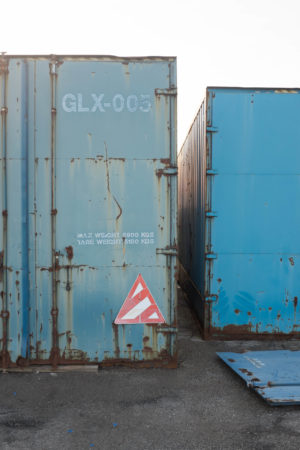350 Canada and grassroots organizing
Sources writing about the fossil fuel divestment movement sometimes seem to think that 350.org and “Fossil Free” are distinct organizations, despite the footer at https://gofossilfree.org/ reading “Fossil Free is a project of 350.org”.
In part, this may be because of how easy it can be with 350.org to confuse branding with organizations. The clearest example which I know of is “350 Canada”. It’s an organization in the sense that you can sign up for a newsletter and track their social media channels and other publications, but not in the sense that you can attend a meeting, see the internals of how their strategic planning happens, or take part in that planning yourself. When they hold calls that people from their mailing lists can attend, it is for them to be told what to do using a pre-determined plan and messaging. Their work is grassroots in implementation, and in terms of the aesthetic that motivates 350’s staffers in Canada, but not in the sense of actually giving influence or input to movement members at the ground level. To me, this seems at odds with the long-standing slogan: “350.org is building a global grassroots movement to solve the climate crisis”.
That’s by no means entirely a bad thing, since developing a coherent and well-developed political strategy isn’t something amateurs are great at (witness the failure to cohere around a genuinely popular and effective agenda in the Occupy movement). I also don’t think hypocrisy is necessarily a productive thing to focus on. At the same time, an organization controlled by a small group of staff members who share many of the same assumptions and preconceptions about what kind of change is desirable and how to achieve it risks ending up talking only to itself and core supporters, without much influencing the mass public or mainstream political dialog. Being in a vanguard can usefully let you get ahead of the public on an issue they haven’t properly come to terms with, but it can also isolate you from the public in a way that is hard to perceive from the inside and which inhibits the organization’s prospects for achieving real-world change.
Mural outside school
Mural near Downsview airport 2/2
Why public promises are often irrelevant to politics
“So accept the favours, sway the key blocs, and you will get into power — ruling with actions that look contradictory and stupid to those who don’t understand the game: privately helping a powerful industry you publicly denounced, or passing laws that hurt a bloc that voter for you. But your job isn’t to have a consistent understandable ruling policy, but to balance the interests of your keys to power big and small. That is how you stay in office.” (9:48)
Mural near Downsview airport 1/2
Social media and the solitudes of left and right
I have seen a lot of discussion about Jonathan Haidt’s recent article in The Atlantic about how social media has broken US politics. It contains some important criticisms of the progressive left, as well as the authoritarian right — particularly about their demand that all speech and thought should conform to their ideological agenda.
On all sides there is a withdrawal from pluralism, the belief and practice that a diversity of political opinions is normal and desirable:
The former CIA analyst Martin Gurri predicted these fracturing effects in his 2014 book, The Revolt of the Public. Gurri’s analysis focused on the authority-subverting effects of information’s exponential growth, beginning with the internet in the 1990s. Writing nearly a decade ago, Gurri could already see the power of social media as a universal solvent, breaking down bonds and weakening institutions everywhere it reached. He noted that distributed networks “can protest and overthrow, but never govern.” He described the nihilism of the many protest movements of 2011 that organized mostly online and that, like Occupy Wall Street, demanded the destruction of existing institutions without offering an alternative vision of the future or an organization that could bring it about.
…
The “Hidden Tribes” study, by the pro-democracy group More in Common, surveyed 8,000 Americans in 2017 and 2018 and identified seven groups that shared beliefs and behaviors. The one furthest to the right, known as the “devoted conservatives,” comprised 6 percent of the U.S. population. The group furthest to the left, the “progressive activists,” comprised 8 percent of the population. The progressive activists were by far the most prolific group on social media: 70 percent had shared political content over the previous year. The devoted conservatives followed, at 56 percent.
…
The most reliable cure for confirmation bias is interaction with people who don’t share your beliefs. They confront you with counterevidence and counterargument. John Stuart Mill said, “He who knows only his own side of the case, knows little of that,” and he urged us to seek out conflicting views “from persons who actually believe them.” People who think differently and are willing to speak up if they disagree with you make you smarter, almost as if they are extensions of your own brain.
…
The “Hidden Tribes” study tells us that the “devoted conservatives” score highest on beliefs related to authoritarianism. They share a narrative in which America is eternally under threat from enemies outside and subversives within; they see life as a battle between patriots and traitors. According to the political scientist Karen Stenner, whose work the “Hidden Tribes” study drew upon, they are psychologically different from the larger group of “traditional conservatives” (19 percent of the population), who emphasize order, decorum, and slow rather than radical change.
As the world gets more destabilized, there is a trend of us all getting pushed into deeper solitudes, unable to even perceive how our own views and presuppositions relate to those of our fellow citizens. The article makes some suggestions for mechanisms to counter that, but it’s hard to imagine them (if they could even be implemented) counteracting the forces pushing us toward a politics of outrage.
Plane outside Bombardier plant
The marriage of journalism and intelligence
“One profession that is particularly close to my heart, a profession that can get away with nearly anything,” Wagenbreth told his colleagues, “and this group are our dear journalists.” Journalists with a good reputation, he said, had excellent access to officials with security clearances and business executives, and could even travel through the Iron Curtain without a cover. Intelligence and journalism, in Wagenbreth’s view, had “entered a kind of marriage,” he said. “They complement each other and can’t let go of each other.” The Stasi knew that the press was addicted to leaks, and that scoop-hungry reporters would even publish anonymous leaks; they also knew that it was extremely difficult for journalists to tell whether a source was genuine or fake, and ever harder to tell if the content of a leak was accurate or forged. And it was another notch harder still to tell whether an anonymous leak contained some shrewd mix of both, handcrafted for maximum impact. The symbiotic relationship found its fullest expression in the active measures field. “What would active measures be without the journalist?” Wagenbreth asked the Stasi leaders. “Revelations are their métier.” The X, of course, had the same métier.
For Wagenbreth, more competitive and polarized media outlets presented a major opportunity. “For the man on the street it is getting harder to assess and judge the written word,” Wagenbreth explained. “He is ever more helpless in the face of the monsters that are opinion factories. This is where we come in as an intelligence agency.”
Rid, Thomas. Active Measures: The Secret History of Disinformation and Political Warfare. Farrar, Straus and Giroux, 2020.






